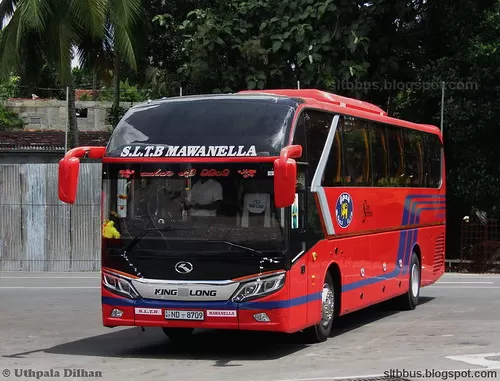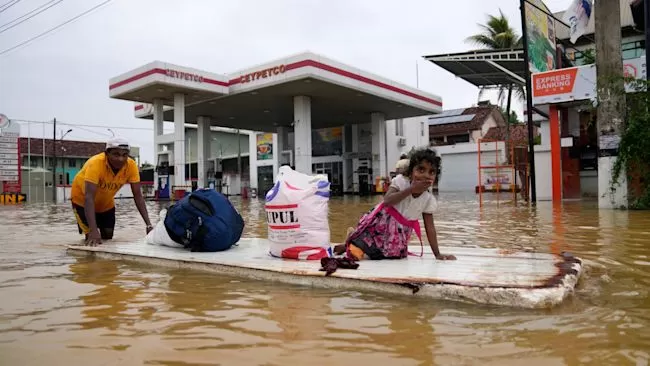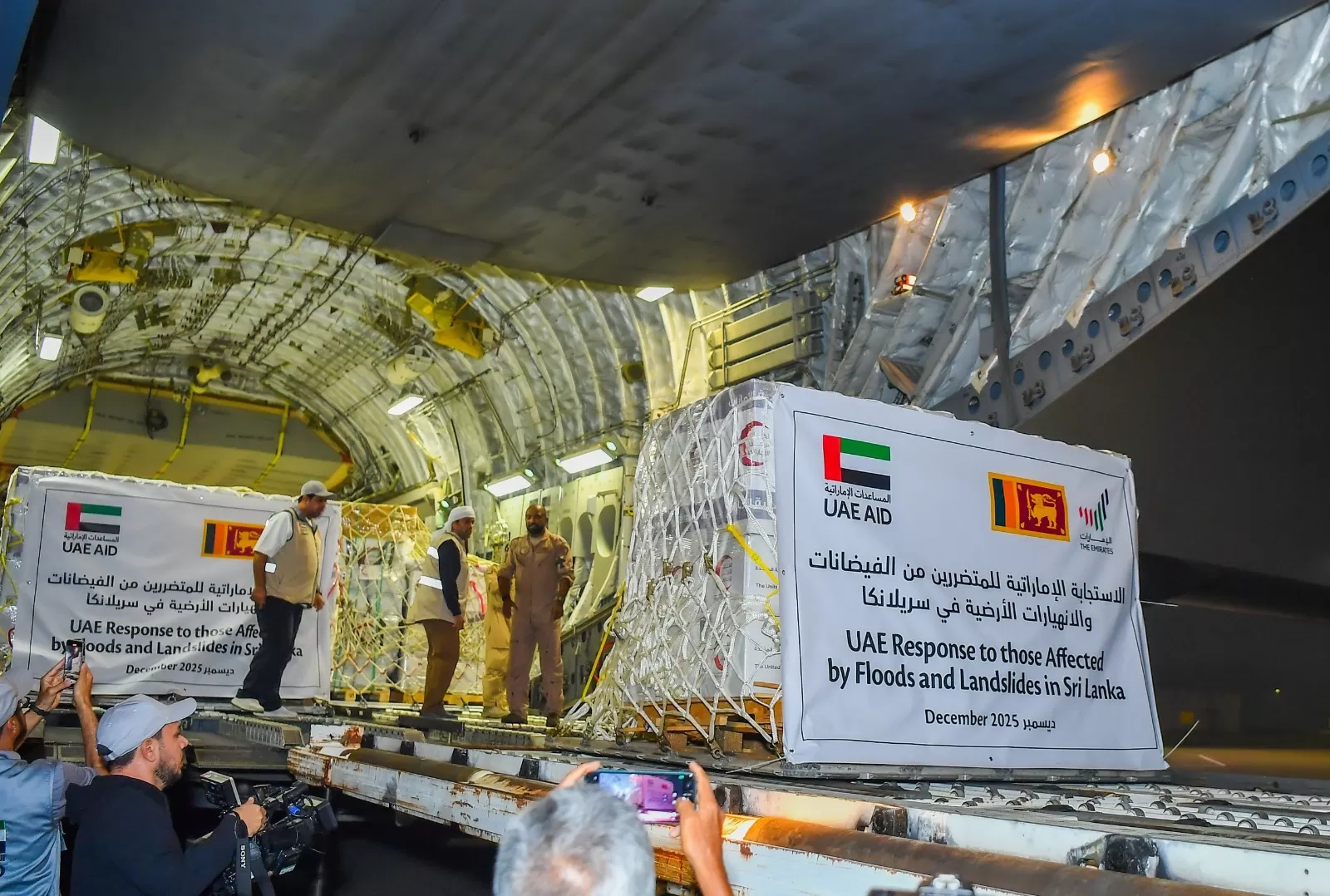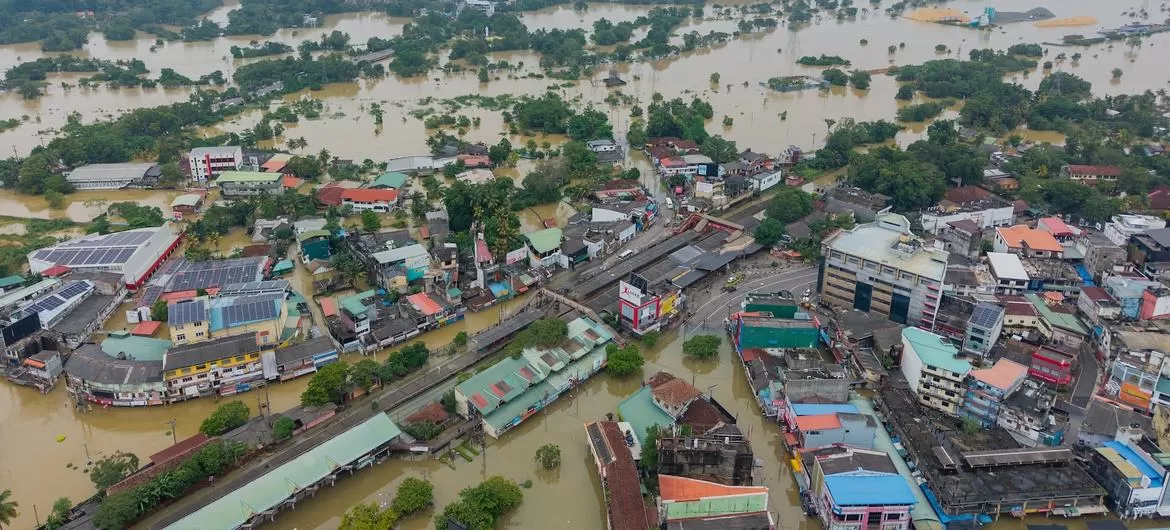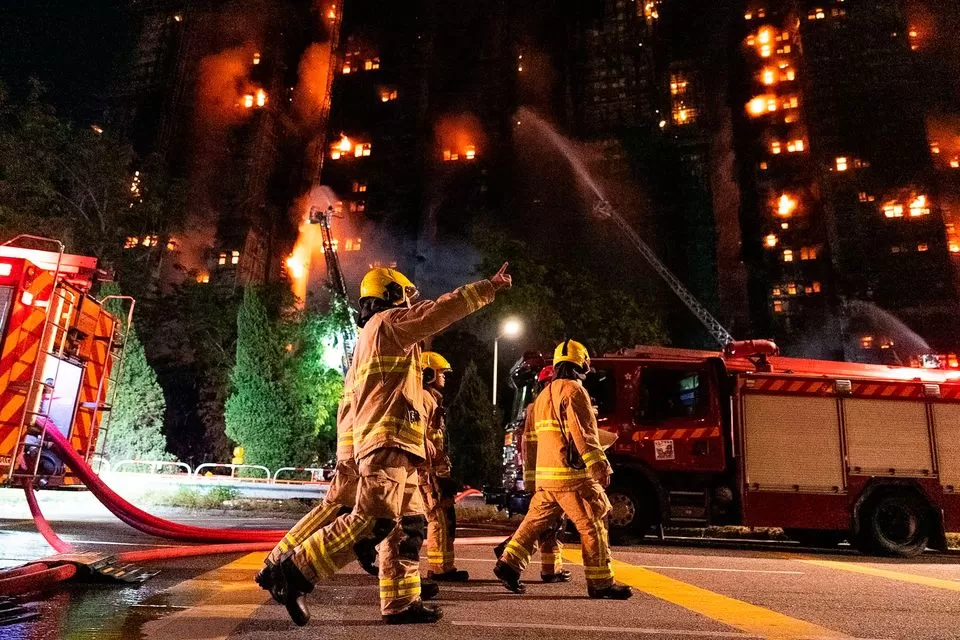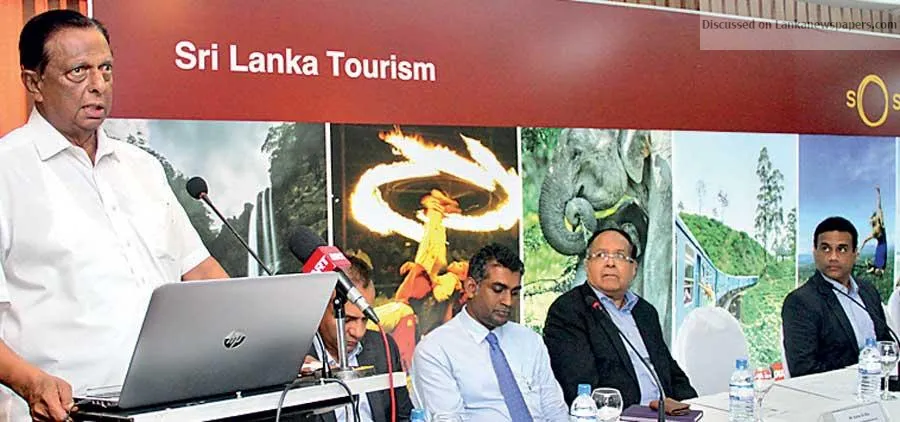
Tourism Development, Wildlife and Christian Religious Affairs Minister John Amaratunga addresses the press briefing in Colombo on promotional package launched to attract tourists post 21/4 incident. Others in the head table (from left) SLAITO President Harith Perera, SriLankan Airlines Holiday Manager Buddhika Hewawasam, Sri Lanka Convention Bureau Chairman Kumar de Silva and SLTPB Chairman Kishu Gomes Pic by Pradeep Pathirana The stakeholders of the badly-hit tourism industry have come to one platform to help revive the market by offering nominal rates and putting together a special promotional campaign to attract travellers, starting with the Indian market. With India being the largest source market for Sri Lanka’s tourism industry in recent years, the tourism authorities together with the stakeholders have decided to kick off the special campaign targeting that country, before making similar packages available for other markets. Following the launch of the promotional campaign for the Indian market yesterday, authorities said similar packages would be conceptualised for China and a number of Middle Eastern countries in the weeks to come. The promotional campaign, valid till September 30, 2019, is the first to be launched since the 21/4 terrorist attacks that negatively impacted the entire economy. Initially targeted at Indian tourists, the package ranges from a combination of stays in destinations such as Colombo, Kandy, Nuwara Eliya, Dambulla, Sigiriya and the south coast, with an array of options to suit any budget. Sri Lanka Convention Bureau Chairman Kumar de Silva shared with reporters yesterday that five packages with three hotel categories are made available, bringing the total to 15 tour package options. Already in action from June 10, the packages are available for all of the 125 routes flown by SriLankan Airlines per week. “The industry has provided rates, which are really very low and never before we have come down to this level to stimulate the Indian market. With this, we are hopeful to attract about 120 Indian tourists per day,” said de Silva. According to Tourism Development, Wildlife and Christian Religious Affairs Minister John Amaratunga, if Sri Lanka can manage to get enough Indian tourists to visit, it is sufficient to keep the industry afloat. “They are our neighbours and the leader in South Asia. If they keep travelling to Sri Lanka, it is enough; we need not depend on anyone else. How we could attract them, we need to work on however,” said the minister. Sri Lanka Tourism Promotions Bureau Chairman Kishu Gomes said that with Sri Lanka having welcomed over 420,000 Indian tourists in 2018 and with outbound tourism in India growing at 7 percent year-on-year, compared to the global average of 4.5 percent, there is enough reasons to increase focus on the neighbouring giant. As India is expected to have over 50 million outbound tourists by 2020, with an average tourist spending of US $ 876, Sri Lanka can focus on the market to reap better benefits in the near future, noted Gomes.
